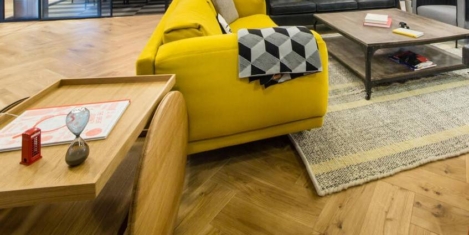March 16, 2018
Equal Lives survey to look at ways men can better balance work and home life
 The challenge to achieve gender equality at work isn’t made any easier by the attitudes of some employers. Although men increasingly want to be more present at home, currently fathers are twice as likely as mothers to have their requests for flexible working turned down. This means their work-life balance is increasingly a source of stress. For this reason a new survey is being launched to look at men’s roles at home and work with the hope that the results will support employers to help men take up more equal caring roles.The Equal Lives project, launched by Business in the Community in partnership with Santander UK, aims to highlight the issues men face when managing responsibilities at work and home and identify workplace practices and policies to help employers retain skilled male and female employees. The study is open to all men in work over 18, regardless of whether they have people who depend on them for their wellbeing. It is also open to women in work, but only those with care responsibilities.
The challenge to achieve gender equality at work isn’t made any easier by the attitudes of some employers. Although men increasingly want to be more present at home, currently fathers are twice as likely as mothers to have their requests for flexible working turned down. This means their work-life balance is increasingly a source of stress. For this reason a new survey is being launched to look at men’s roles at home and work with the hope that the results will support employers to help men take up more equal caring roles.The Equal Lives project, launched by Business in the Community in partnership with Santander UK, aims to highlight the issues men face when managing responsibilities at work and home and identify workplace practices and policies to help employers retain skilled male and female employees. The study is open to all men in work over 18, regardless of whether they have people who depend on them for their wellbeing. It is also open to women in work, but only those with care responsibilities.







 Artificial intelligence systems need to be accountable for human bias at AI becomes more prevalent in recruitment and selection, attendees at the Employers Network for Equality & Inclusion’s annual conference have been warned. Hosted by NatWest, the conference, Diversity & Inclusion: The Changing Landscape heard from experts in ethics, psychology and computing. They explained that AIs learnt from existing data, and highlighted how information such as performance review scores and employee grading was being fed in to machines after being subjected to human unconscious bias. Dr David Snelling, the programme director for artificial intelligence at technology giant Fujitsu, illustrated how artificial intelligence is taught through human feedback. Describing how huge data sets were fed into the program, David explained that humans corrected the AI when it used that data to come to an incorrect conclusion, using this feedback to teach the AI to work correctly. However, as this feedback is subject to human error and bias, this can become embedded in the machine.
Artificial intelligence systems need to be accountable for human bias at AI becomes more prevalent in recruitment and selection, attendees at the Employers Network for Equality & Inclusion’s annual conference have been warned. Hosted by NatWest, the conference, Diversity & Inclusion: The Changing Landscape heard from experts in ethics, psychology and computing. They explained that AIs learnt from existing data, and highlighted how information such as performance review scores and employee grading was being fed in to machines after being subjected to human unconscious bias. Dr David Snelling, the programme director for artificial intelligence at technology giant Fujitsu, illustrated how artificial intelligence is taught through human feedback. Describing how huge data sets were fed into the program, David explained that humans corrected the AI when it used that data to come to an incorrect conclusion, using this feedback to teach the AI to work correctly. However, as this feedback is subject to human error and bias, this can become embedded in the machine.
 Work is no longer a place but a set of activities which lead to a set of outcomes that could be delivered anywhere. Or as John Blackwell, Quora Consulting’s Managing Director succinctly described it at the first of the 2018 Quora Smartworking Summit’s held last week, organisations need to create a ‘smart everywhere’ environment. New digital platforms make far it easier for people to work in exactly the way they want. Research by Quora has revealed that there are 5 million people currently working in the UK gig economy or around 15.6 percent of the total workforce. More people are working post retirement age and want to work in a way that they can control, while there are increasing numbers who simply want more autonomy in their lives in the way that self-employment can offer.
Work is no longer a place but a set of activities which lead to a set of outcomes that could be delivered anywhere. Or as John Blackwell, Quora Consulting’s Managing Director succinctly described it at the first of the 2018 Quora Smartworking Summit’s held last week, organisations need to create a ‘smart everywhere’ environment. New digital platforms make far it easier for people to work in exactly the way they want. Research by Quora has revealed that there are 5 million people currently working in the UK gig economy or around 15.6 percent of the total workforce. More people are working post retirement age and want to work in a way that they can control, while there are increasing numbers who simply want more autonomy in their lives in the way that self-employment can offer. 























March 15, 2018
What the Chancellor’s Spring Statement means for the employment landscape
by Oliver Shaw • Comment, Workplace
(more…)